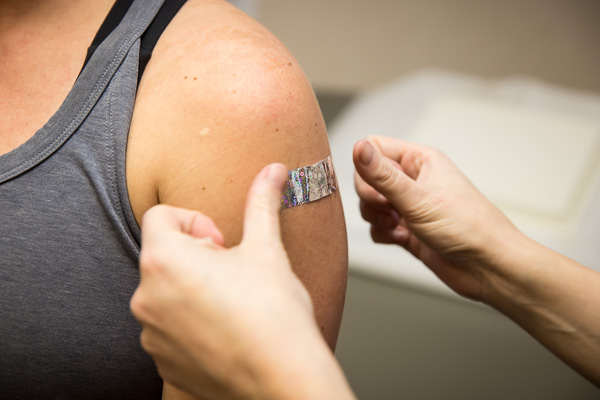
Author: Julie Kiefer
 University of Utah Health is one of six sites in the U.S. to carry out the vaccine effectiveness study, led by the Center for Disease Control and Prevention (CDC). The research will help determine how well COVID-19 vaccines work in the “real-world” and outside of the controlled clinical trial setting in which they were initially tested.
University of Utah Health is one of six sites in the U.S. to carry out the vaccine effectiveness study, led by the Center for Disease Control and Prevention (CDC). The research will help determine how well COVID-19 vaccines work in the “real-world” and outside of the controlled clinical trial setting in which they were initially tested.
"While the FDA has authorized various vaccines for use based on data from clinical trials, we still want to be confident that the vaccine effectiveness remains high in a real world, less controlled setting." says Jeanmarie Mayer, MD, the study's co-principal investigator with Matthew Samore, MD, both epidemiologists and professors of internal medicine. "The data we are collecting is part of the CDC's highest priority study to evaluate its real-world effectiveness."
Other vaccine effectiveness study sites include Duke University, Johns Hopkins University, Rush University, University of Wisconsin, and Washington University. Funding for the project comes from the CDC's Safety and Healthcare Epidemiology Prevention Research Development (SHEPheRD) program.
Tens of thousands of people participated in phase 3 randomized controlled clinical trials showing that the Pfizer-BioNTech and the Moderna mRNA vaccines are safe and highly effective. But it is well known that results from clinical trials sometimes differ from how medicines and interventions perform outside of that highly regulated setting.
Real-world studies like this one broaden the scope by determining how well vaccine works in a large number of participants that more accurately represent the U.S. population with a variety of ethnic backgrounds, an array of pre-existing health conditions and who receive care in different health systems. This type of research can also reveal whether variations in vaccine transport and storage influence how well the vaccine works.
This study is the CDC's initial approach for formally evaluating effectiveness of vaccines outside of clinical trials. Specifically, it examines how well COVID-19 vaccines prevent symptomatic laboratory-confirmed COVID-19. The research utilizes an efficient test-negative design, where individuals who were symptomatic and tested positive for COVID-19 are compared to symptomatic individuals who tested negative. Further assessment will look at who received COVID-19 vaccine or not, which will show how well the vaccines protect against both severe and mild illness.
Health care personnel (HCP) at U of U Health may be sent an email invitation to take part in an IRB-approved study to examine vaccine effectiveness in the "real-world." The study is enrolling both vaccinated and unvaccinated HCP who had been tested for COVID-19 in the past; the results could have been either positive or negative.
Study participants will fill out an online survey and consent to review of their electronic health records (EHR) for information such as comorbidities, vaccination history, and exposures. In compensation for their time, they will receive a gift card worth $20.
"With these results, we hope to become even more confident that the vaccines prevent symptomatic disease," says Samore. "It will be possible to quantify the degree of protection afforded to our healthcare workers, including for individuals with pre-existing health conditions. The combined data from this study also have the potential to generate insights about the impact of variant strains of SARS-CoV-2"